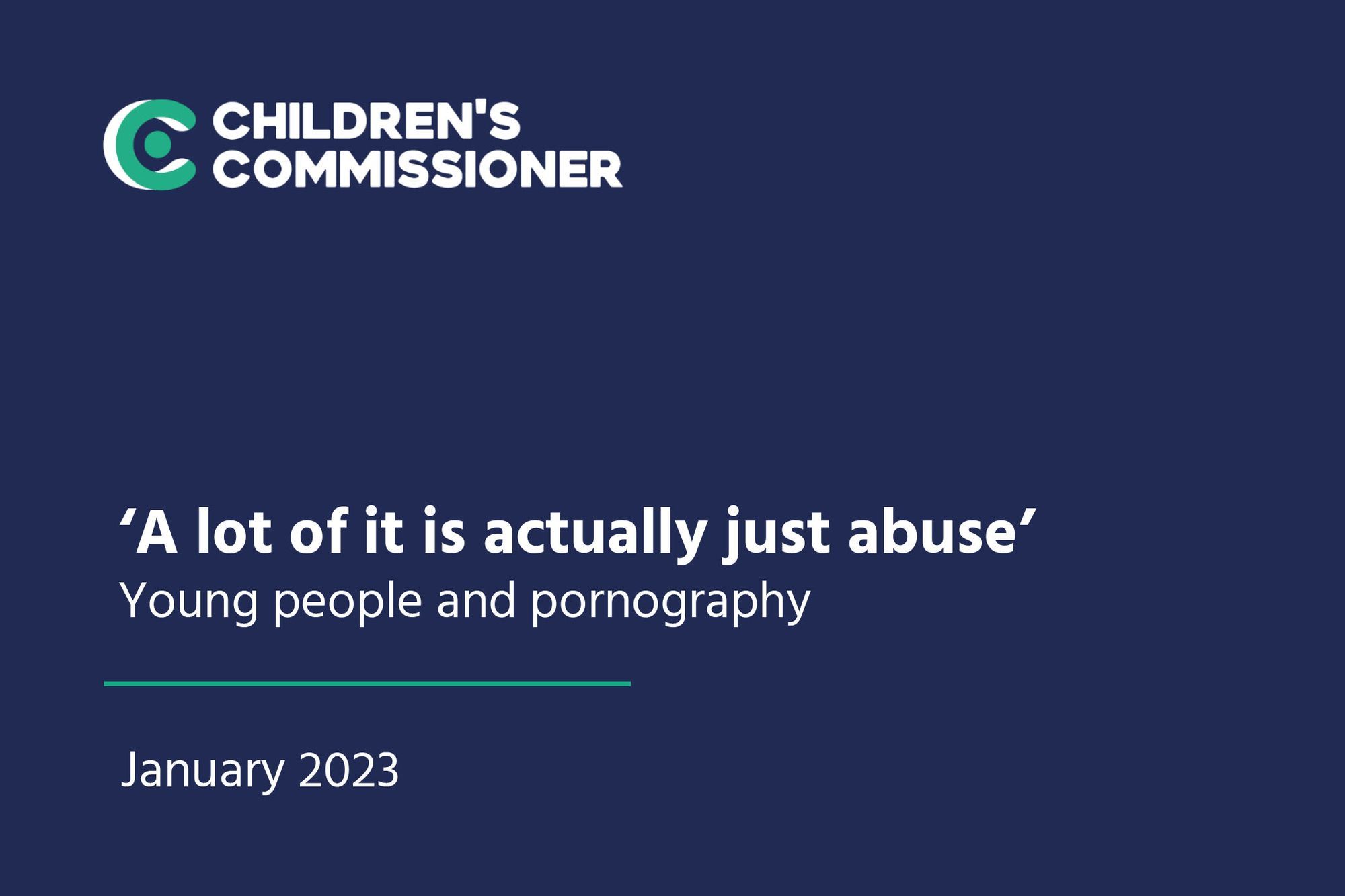Children’s Commissioner Report

Follow VerifyMy on LinkedIn to keep up to date with the latest safety tech and regulatory developments.
The Children’s Commissioner for England publishes results of nationally representative survey of 1,000 young people aged 16 to 21 and focus groups with teenagers.
31st January 2023: Children are being exposed to pornography from as young as nine, which is linked to low self-esteem among young people and harmful views of sex and relationships, according to new survey data published today by the Children’s Commissioner for England.
The research, which draws together the findings of a nationally representative survey of over 1,000 young people aged 16 to 21 and focus groups with teenagers, reveals that the average age at which children first see pornography is 13. By age nine, 10% had seen pornography, 27% had seen it by age 11 and half of children who had seen pornography had seen it by the age of 13. This means that around 1 in 4 children in a Year 6 class will have viewed pornography.
Young people also reported being frequently exposed to violent pornography online, with 79% of young people aged 18 to 21 saying that they had seen pornography involving sexual violence before turning 18. Research by the Children’s Commissioner’s office also found that nearly half of young people assume that girls ‘expect’ or ‘enjoy’ sex which involves physical aggression, such as airway restriction. A greater proportion of young people assume that girls enjoy physically aggressive sex, than think that boys do.
The report finds that more than 1 in 3 young adults actively seek out pornography depicting sexual violence, such as physical aggression, coercion and degradation. This comes amidst growing concerns about the influence of misogynists such as Andrew Tate on young boys and men and the role that violent pornography played in the appalling abuse of women by former police officers David Carrick and Wayne Couzens.
Despite this, many young people surveyed reported having seen pornography accidentally, with 38% of 16 to 21-year-olds saying they had stumbled across explicit content online. Social media platforms were commonly cited as a place where young people view pornography, with the greatest number (41%) saying they had seen it on Twitter. This was closely followed by dedicated pornography sites (37%), Instagram (33%), Snapchat (32%) and search engines (30%).
Research also found that:
- A significant proportion of young people seek out violent pornography; 36% of young adults had sought out pornography involving at least one act of sexual violence.
- Girls are disproportionately the target of ‘self-generated’ pornography. 51% of girls aged 16 to 21 had been sent or shown explicit content involving someone they knew, compared to 33% of boys.
- Girls are significantly more likely than boys to experience a violent sex act. 47% of female respondents aged 18 to 21 had experienced a violent sex act which could be defined as aggressive, coercive or degrading.
- Early exposure to pornography impacts upon young people’s self-esteem. Young people who had viewed pornography aged 11 or younger were significantly more likely to present lower self- esteem scores than the average young person.
In light of these findings, the Commissioner has made a series of recommendations, including that Parliamentarians should name pornography as a priority harm to children on the face of the Online Safety Bill, so that Ofcom can implement regulation of platforms hosting adult content as soon as possible following the passage of the Bill.
Children’s Commissioner for England, Dame Rachel de Souza said: “I am deeply concerned by these findings, particularly the normalisation of sexual violence in online pornography and the role that this plays in shaping children’s understanding of sex and relationships.
“We urgently need to do more to protect children from the harms of online pornography. It should not be the case that young children are stumbling across violent and misogynistic pornography on social media sites. I truly believe we will look back in 20 years and be horrified by the content to which children were being exposed.
“I urge every adult in responsible position – whether politician or policymaker, parent or teacher – to listen and take seriously the views of young people contained within this report. It is crucial that we do not miss the opportunity the Online Safety Bill presents us with to make the internet safe for all children, today and in the future.”

